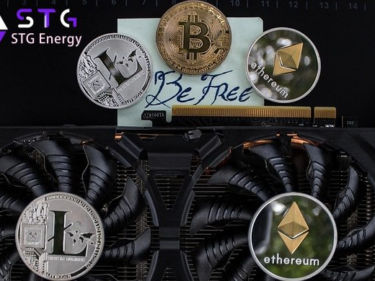Cryptocurrency Explained: Are They a Safe Investment Option?

The category of currency that works on an electronic or virtual system is referred to as cryptocurrency. Cryptocurrency explained the correct usage of encryption technology to protect valuable and sensitive data. A decentralized or distributed mechanism is employed to look over all of the operations that are happening on the network. It also has the responsibility to give rise to new components as there is no central institution involved.
Cryptocurrency explained that financial transactions can be performed without the help of a central institution. Because of the reason operations are authenticated using cryptography, virtual currency has earned its status.
This indicates that the preservation, delivery, and storing of bitcoin information in public ledgers all entail complicated software. The main purpose of encryption is to offer protection and privacy.
Bitcoin laid down the foundation of virtual currency and every other alternate coin follows its steps. They work on the same consensus technology but many of them have upgraded and found better ways to make more progress. There are more than 20 thousand digital currencies available and many are still under production.
Cryptocurrency Explained: The Working Mechanism
A decentralized public database known as the blockchain, which is modified and maintained by cryptocurrency investors, is the foundation of digital currencies.
The process of mining is utilized through which computing abilities are employed to find the answers to arithmetical problems. After this part, units or rewards of cryptocurrency are generated. You can also get your virtual currency from numerous marketplaces and if you want to store them, save them in digital wallets.
How Safe is This Virtual Currency?
Blockchain technology is frequently employed when creating digital currencies. It explains how payments are time-stamped and preserved into “blocks.” A digital record of digital currencies is involved in the creation, which is challenging for attackers to alter despite being a fairly convoluted, technical procedure.
Purchases also demand multiple authentication procedures. To begin a payment, for example, you could be required to provide a username and password. After that, you would have to give them the credentials which they sent you on your chosen device.
Despite the fact that there are security precautions in place, virtual currencies can still be exploited. Virtual currency setups have been heavily affected by a string of catastrophic cyberattacks. The two biggest virtual currency breaches of 2018 featured Coincheck, which was aimed at $534 million, and BitGrail, which was attacked for $195 million.
The valuation of digital currencies is totally determined by market forces, unlike cash which the government guarantees. This can contribute to erratic fluctuations that either result in large rewards for shareholders or deficits for them.
Additionally, compared to conventional investment vehicles like shares, securities, and index funds, investing in cryptocurrencies is protected by government involvement considerably less commonly.
What Powers the Digital Currency?
Blockchain technology is integral to the allure and effectiveness of Bitcoin and other digital currencies. Blockchain, as its name implies, is simply a collection of linked units or an electronic database. A group of operations are contained within every block, and each individual network member has autonomously validated each operation.
It is extremely difficult to fabricate transaction histories because every new block that is created must first be checked from every node in order to be confirmed.
The complete system of a particular node, or device, holding a record of transactions, must concur with the information of the electronic database.
Are Cryptocurrencies Legal?
Governments or financial institutions are the sources of fiat currency legitimacy. For instance, the Federal Reserve fully backed every banknote.
But neither a government nor a corporate institution is endorsing virtual currencies. As a result, it has proved to be challenging to defend their legal authority in many economic institutions around the globe. The fact that digital currencies have generally thrived independently of the majority of the current banking systems does not assist the problem.
The use of digital currencies in everyday transactions and investing is affected by their protected framework. The FATF suggested in 2019 that the Travel Rule, which necessitates AML certification, be applied to financial transactions of digital currencies.
Storage of the Currency
You must preserve virtual currency if you acquire it. A virtual wallet or a marketplace is optimal to save your digital assets. Wallets come in all sorts, and each comes with features, technological constraints, and information protection that must be achieved. You should research your data storage before purchasing, just like with exchange platforms.
Ending Statement
Cryptocurrency explained how blockchain technology can be effectively employed and how a whole financial system can run without the need for any intermediaries. It is risky to invest in this commodity because it has an extremely turbulent marketplace.
But if you use trading bots such as the-bitalpha-ai.com, it will assist you in making better trading decisions and avoiding maximum loss. You will have to gain complete background knowledge before diving into this field else you will be easily scammed or conned by malicious users.



